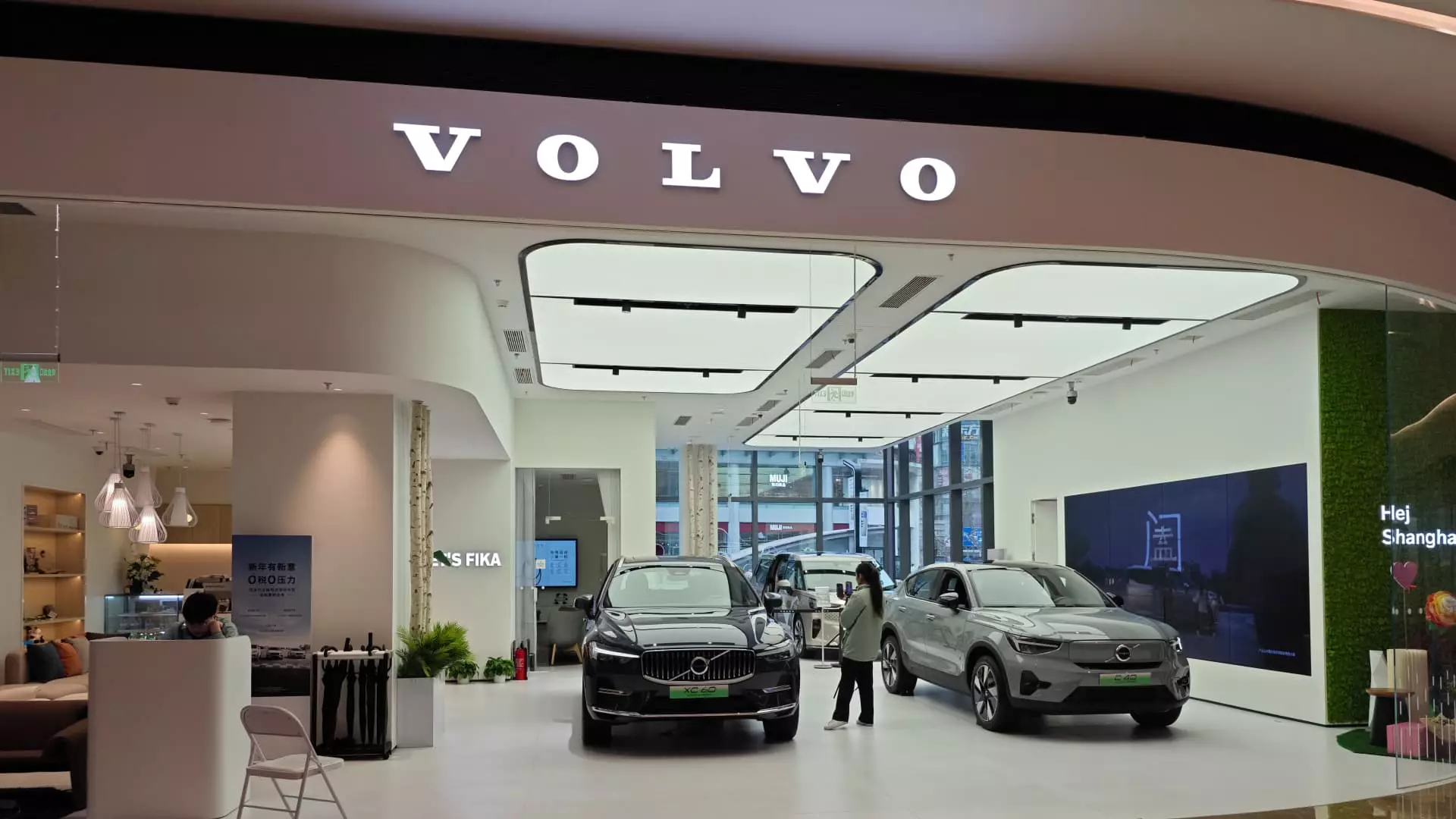Volvo Cars, a Swedish automaker with a majority ownership by China’s Geely Holding, recently announced that it is adjusting its margin and revenue targets due to the complexities surrounding global trade and tariffs. The company is now aiming for an EBIT margin goal of 7-8% by 2026, which is lower than its previous target of “above 8%.” Additionally, Volvo is no longer pursuing a goal of achieving 100% all-electric vehicle sales by 2030 as it faces challenges related to international trade disputes and the evolving market dynamics.
The transition to electric vehicles has proven to be a challenging task for many automakers, including Volvo Cars. The company cited various reasons for revising its sales targets, such as consumer demand, slow rollout of charging infrastructure, withdrawal of government incentives in certain markets, and uncertainty surrounding tariffs on EVs. These factors have contributed to Volvo’s decision to aim for a 90-100% range of electric vehicle sales by 2030, rather than a strict 100% target.
Market Conditions and Consumer Concerns
Despite the growing popularity of electric vehicles, automakers continue to face challenges in meeting consumer expectations and market demands. Many consumers express concerns about the insufficient charging infrastructure and limitations in range, which have impacted the overall adoption of electric vehicles. Volvo Cars acknowledges these challenges and remains committed to fully electric sales in the long term, once the market conditions become more favorable.
Partnerships and Technological Advancements
In response to the changing landscape of the automotive industry, Volvo Cars announced that it is extending its partnership with U.S. chip giant Nvidia to develop advanced features for driving assistance and autonomous driving. The company is also focusing on streamlining its manufacturing process by implementing a “single technology stack” to reduce the costs associated with EV production. These strategic initiatives demonstrate Volvo’s commitment to innovation and sustainability in the ever-evolving automotive market.
Despite the challenges faced by Volvo Cars, the company reported a 3% year-on-year increase in global sales in August, driven by a significant growth of 32% in Europe. However, sales in China experienced a decline of 23%, reflecting the varying market dynamics in different regions. Fully-electric and plug-in hybrid vehicles accounted for nearly half of the total vehicle sales in August 2024, highlighting the company’s progress in transitioning towards electrification.
Volvo Cars’ decision to adjust its margin and revenue targets in response to the evolving market conditions demonstrates the company’s adaptability and strategic planning to navigate the complexities of the automotive industry. By focusing on technological advancements, sustainable practices, and consumer needs, Volvo Cars is positioning itself for long-term success in the accelerating shift towards electric mobility.

